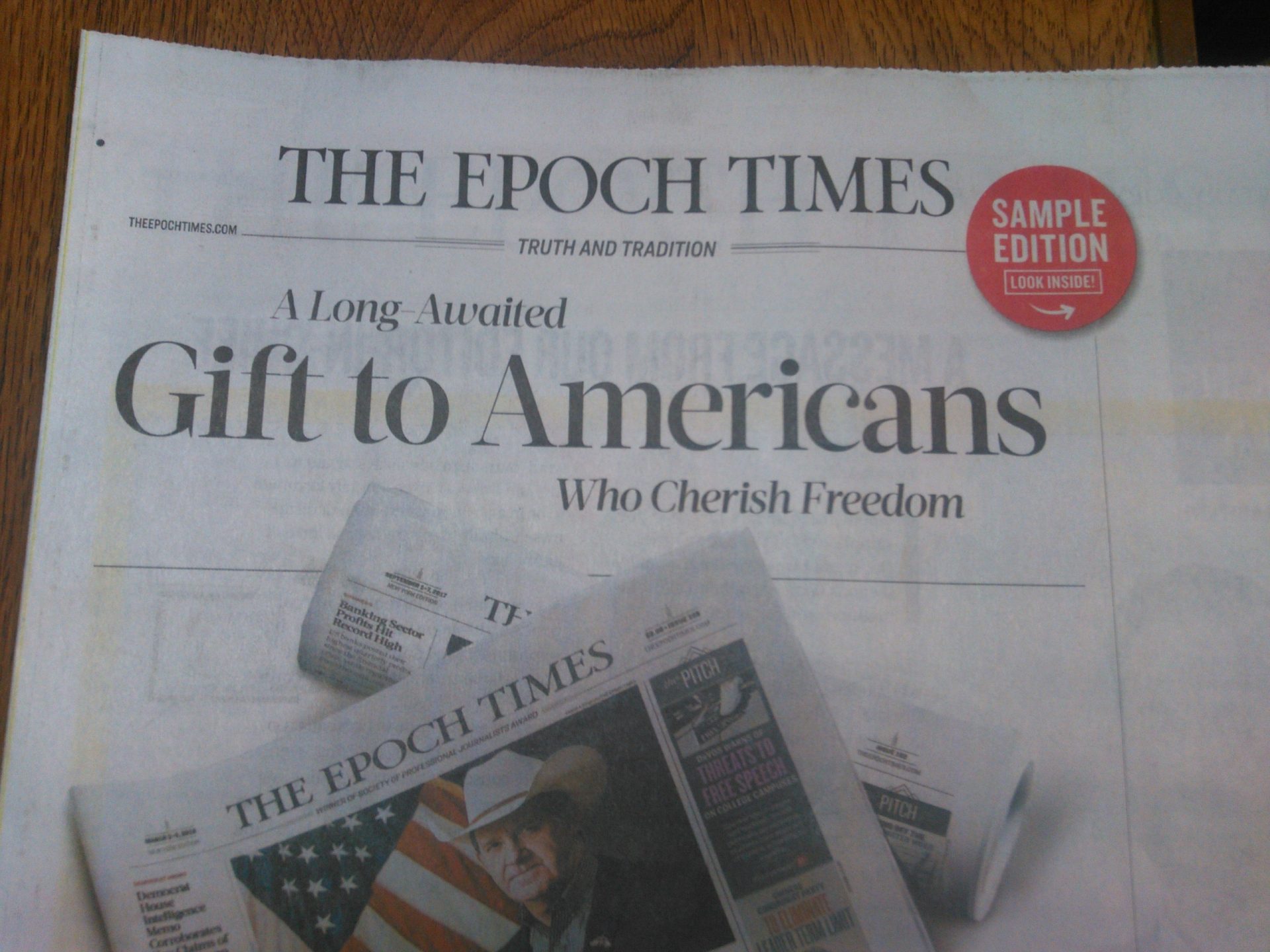JS: Oh, there were lots of things but few exist today. There were transistor radios, microwave ovens and ballpoint pens, which could write upside down.
SK: Surely you’re making this up!
JS: Do you see that white rectangular thing sitting on the counter back there?
SK: Yes.
JS: Walk back to it. There is a stone cup on the counter with tea in it. Touch and taste the tea to prove to yourself it has gone cold.
SK: Okay, so it has gone cold.
JS: Press the large rectangular button on the lower right of the device. Good. Now place the cup inside and close the door. On the keypad, which is the little rectangle of numbers, press the five twice, then hit start. Good. Wait for it to stop… now press the button to open the door and take the cup out.
SK: Ouch!
JS: That is a microwave oven and, as you have just learned, it still functions.
SK: So I’m supposed to take the other two on faith?
JS: Walk over to that desk. Pick up the silver pen, which is laying on its side in a small box. Hold your notepad over your head and write your name.
SK: Look at that…amazing!
JS: I don’t have a transistor radio anymore—at least, not one that works. I wouldn’t waste the batteries on one if I had it. Most likely, there aren’t any radio stations left, anyway.
SK: Can we talk about the Microsoft Wars now?
JS: Orwell was right. Everyone was forced to read his book and yet, it still happened. In reality, that is all anybody needs to know.
SK: Orwell?
JS: <sighs> Back in 1949, an author by the name of George Orwell published a novel titled 1984. It was a look into the future and basically created the concept in society of Big Brother. This Big Brother was a government, any government really, which would watch over you like a child. Your life would be monitored and controlled 24 hours per day. The dictionary would not grow in size, but shrink, as words and thoughts were continually restricted. Anyone who possessed a thought against the government, system or the way things were being run would be turned in by friends/family/neighbors as a thought criminal.
One by one, various ministries were set up to control every aspect of life, all for the betterment of society, and most had some plausible excuse bringing them into existence. There would be monitors installed everywhere, so you were continually watched and controlled. It was one of the best- selling and most widely talked-about books of all time. Many movies were created showing various flavors of the book.
SK: Well, if everybody knew about it, then it surely didn’t happen.
JS: Not in 1984, no. The final vehicle for control wasn’t chosen until the early 1990s and it took a while to roll out globally. Sometime during 2010, the governments around the world achieved 95 percent of what they wanted. The vast majority of citizens carried with them a 24-hour monitoring device, which could be accessed remotely and would, via GPS, give a complete picture of their travels. Each one had a unique ID. Best of all, the devices were marketed in such a way as to make people think they were nothing unless they had one and kept it with them at all times.
When it became apparent that some portions of society simply couldn’t afford the devices—yes, each citizen paid for their own, and gladly…they even paid to customize them—most governments came up with some kind of ministry or program to ensure each and every person falling into the “cannot afford” category was issued one under some plausible story as “medical need” or “neighborhood watch.” This removed the poor-person-rejection-of-charity problem. Nobody felt insulted to receive the devices, since the devices allowed them to communicate with anyone at any time, as long as they knew the other person’s unique ID.
SK: Do you honestly expect me to believe that everybody stood in line to get a unique ID for the government to monitor them 24 hours per day, seven days per week?
JS: No. They didn’t see it like that. They stood in line to get the latest and greatest cellphone with video camera, GPS, speaker phone, Internet access, and every other buzz phrase marketing could think of. If you don’t know what any of that is, it doesn’t matter. All you need to know is the more applications, called apps, it had, the more people wanted it.
Each phone had to have a phone number, which was globally unique so anyone in the world could call anybody else in the world, no matter where they were at the time. It was that “anywhere, anytime” communications capability that was a major selling point. A system of assigning phone numbers to allow for international calling had been in place for many years due to the older land line system, so it was simply leveraged.
Everyone proudly carried and used their government monitoring device. There were even crime shows on television showing how law enforcement agencies could track a cellphone as long as it was turned on. What they didn’t tell you was that the phone would periodically report in even when turned off, and if certain instructions were waiting, it would turn itself back on, silently, so full monitoring could continue without the owner being aware.
The only thing that could truly stop monitoring was to remove the battery, then turn the cellphone on to drain the hidden reserve. When you did that, however, the phone was of no use.
SK: So let me get this straight—you’re saying that there was a communications network that could monitor every person in the country?
JS: No. Before the middle of 2011, thanks to some production cost reductions, it was every person on the planet living in any civilized country and even many third world countries. A basic cellphone could be manufactured and sold for under $20 retail, which put the actual production cost at about $6. Those countries too poor or with terrain too rough used the satellite phones, which cost a bit more, but leveraged cellphone components to reduce costs. Both networks were monitored by government agencies, even though commercial companies were providing the services to the cellphone owners. Even children in third world countries who didn’t have food to eat or a bank account in their name had a phone so they could be tracked.
SK: Just what does this cellphone story have to do with the Microsoft Wars?
JS: Far more than you are capable of understanding at this point. Do you even know what Microsoft was?
SK: An evil empire of some kind that met its destruction during the Microsoft Wars.
JS: Is this what is being taught where you come from? If that is all you know, then you really have no frame of reference to ask the question. Let me guess—you were sent on this mission because your father is the mayor, or whatever they call the leader of your town, and your mother runs the newspaper?
SK: My mother is the mayor of the city and my father runs the newspaper. I told you before that he trained me for my job. I am the most senior reporter and I don’t like your insinuation that I’m not qualified to be here!
Now. Are you saying Microsoft wasn’t an empire?
JS: It was a corporate empire, not a country or territorial empire. It was at the root of multiple wars, although it had no standing army or military of any kind.
SK: You aren’t making any sense.
JS: As I said, you don’t have a frame of reference so you cannot ask the question. Unless you understand some things about Earth That Was, you cannot begin to understand what the Microsoft Wars really were.
SK: How can knowing about a pen that writes upside down help one to understand what the Microsoft Wars were?
JS: Do you even know when the wars ended?
SK: Some say it was over 150 years ago; that is why so much has been lost.
JS: It all ended on November 13, 2013. It was sixty-eight years ago, next week. They ended the same day we got twelve continents, although it took a while to figure the continent part out. I was eleven years old at the time. There was no winner and no treaty was ever signed.
***********************
You are reading a special promotional version of “John Smith – Last Known Survivor of the Microsoft Wars.” This is the third book of the “Earth That Was” trilogy. You can obtain the entire trilogy in EPUB form from here:



